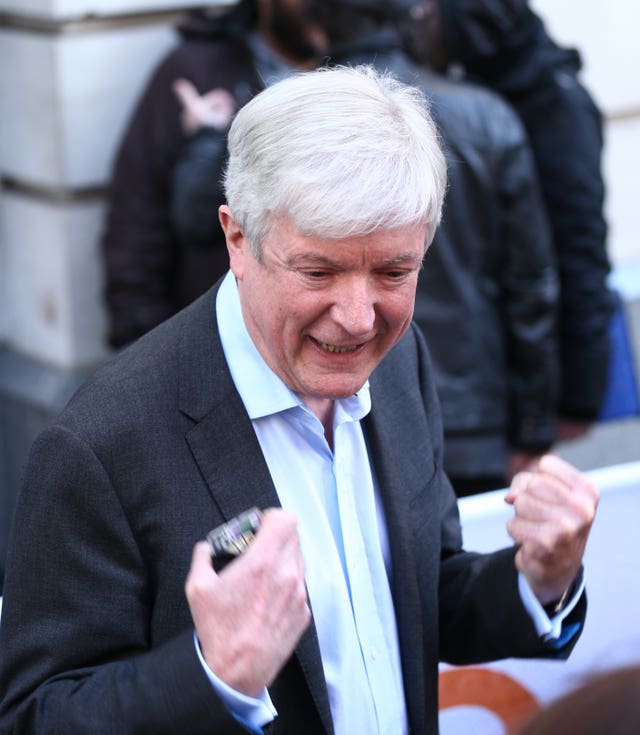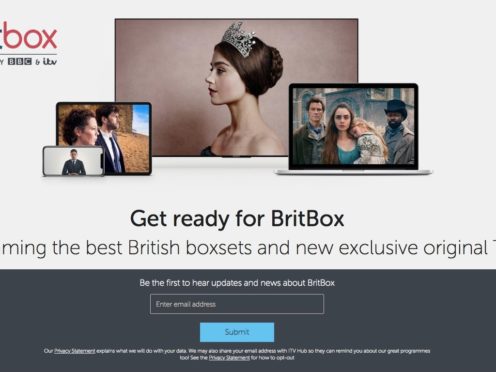BBC boss Tony Hall has dismissed complaints that viewers will have to pay twice for its shows with the launch of BritBox.
The broadcaster has unveiled plans, with ITV, for a streaming subscription service for its shows after they have aired on iPlayer.
Some have questioned why they should pay again for BBC hits, having already been charged the £154.50 licence fee.
But speaking at a media and telecoms conference, the corporation’s director-general said: “I don’t see the point… about paying twice.

“You are paying once, we hope for a much longer window and more content than ever before, on-demand whenever you want it and a more personalised service (on iPlayer).
“And then, as you have done with DVDs or with paid channels in the past, you have to pay a little extra for that. I think people understand that model.”
He said the licence fee is sustainable despite the broadcaster getting into streaming, “as long we can show people we are giving real value”.
He warned that the BBC’s digital services will be “the only ones” a significant proportion of its audiences use in as little as five years.
Lord Hall said it was time to ask whether all the regulation in which public service broadcasters operate in is “still necessary”.
He called on regulators to keep “pace” with changes to the TV landscape, as new competitors such as Disney, Apple, Comcast and WarnerMedia come “flooding in”, to join the likes of Netflix and Amazon.
If public service broadcasting is to “thrive”, the regulation “needs to change and adapt,” he said.
“The landscape in which we operate has changed beyond all recognition over the past decade. But our regulation has stayed largely the same….
“We need to look afresh at regulation, and ask whether all the historic interventions that have built up over the decades are still necessary….
“It can’t be right that… the same programme can be regulated in half a dozen different ways in the UK, depending on who’s hosting it.
“And all this needs to happen at pace.”
The broadcaster will have to go through regulatory hurdles to launch BritBox, while iPlayer is also going through a public interest test.
Lord Hall said: “I’m after a level playing field… We have to move at speed.”
His comments come after ITV’s boss, Carolyn McCall, said British broadcasters must be able to compete on “equal terms” with global giants such as Netflix.
Public service broadcasters are regulated by Ofcom and face strict rules on everything from regional production quotas to the watershed.
A set of rules on competition, prominence, advertising, taxation, content regulation and production quotas are applied to UK companies but barely any for the global giants.
Lord Hall said it was estimated that Netflix spent as much as 13 billion dollars on movies and shows last year, while Amazon has a content spend of around five billion dollars.
“They’re reportedly setting aside one billion dollars for five series of Lord Of The Rings. Disney has a 100 million dollar budget for a single series of Star Wars,” he said.
“The BBC’s TV content spend taken altogether is around £1.5 billion across a whole year.”
But he boasted that the BBC’s Bodyguard finale reached 17 million viewers in one month while “our data suggests (Netflix drama) The Crown reached seven million users in the UK in 17 months”.
With audiences moving away from linear television to streaming and catch-up services, he added: “It might be five years away, it might be 10, but soon our digital services will be the only ones some of our audiences use.”
Shows currently remain on iPlayer for around 30 days but the BBC wants that extended for at least a year.
BritBox is designed as “a long-term home” for many shows after they are no longer available on BBC iPlayer and ITV Hub.
Lord Hall was speaking at the Media And Telecoms 2019 & Beyond Conference, taking place in London.
